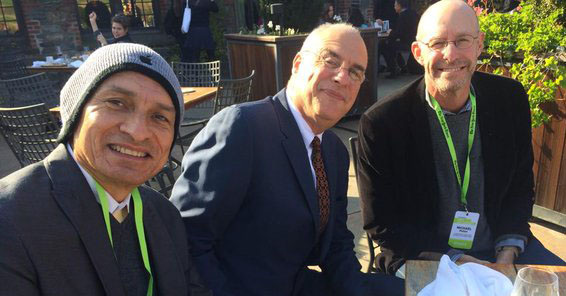Starting with an Washington Post op-ed piece in November of 2014, 4 writers, journalists, and scientists began to frame an argument, that began by asserting that, “…we have no food policy – no plan or agreed-upon principles – for managing American agriculture or the food system as a whole.”
The authors are Mark Bittman, Food Writer and a Fellow at Union of Concerned Scientists; Michael Pollan,journalist and food activist; Ricardo Salvador, an expert in sustainable agriculture practices, is a senior scientist and director of the UCS Food & Environment Program; and Olivier De Schutter, a Belgian legal scholar specialising in economic and social rights, served as the United Nations Special Rapporteur on the right to food from 2008 to 2014. The op-ed piece, “How a national food policy could save millions of American lives,” can be read here. A key observation made early in the piece:
“…When hundreds of thousands of annual deaths are preventable – as the deaths from the chronic diseases linked to the modern American way of eating surely are – preventing those needless deaths is a national priority.”
That was back in 2014. In October of 2015, the authors expanded their argument for a National Food Policy in an article published on Medium, entitled “Why We Need a National Food Policy.” Your can read that article here. Although this writing is more than a few months old, the issues are more relevant than ever.
With fewer than fifty days until the presidential election, Friends of Evanston Farmers Markets thinks that it is important to consider anew the issues that were birthed back in the 1970s, when
under President Nixon, there were fundamental changes in agricultural policies. To produce cheap food, the industrialization of food with its accompanying subsidies became a reality leading to a dependence on fossil fuels and monoculture farming. This significant change moved us from supporting small, environmentally friendly farms. As explained by these forward thinking authors, the change has resulted in a heavy price to our health and that of the environment.
The underlying goals that Messrs. Bittmann, et al articulate are anything but controversial:
- All Americans have access to healthful food;
- Farm policies are designed to support our public health and environmental objectives;
- Our food supply is free of toxic bacteria, chemicals, and drugs;
- Production and marketing of our food are done transparently;
- The food industry pays a fair wage to those it employs;
- Food marketing sets children up for healthful lives by instilling in them a habit of eating real food;
- Animals are treated with compassion and attention to their well-being;
- The food system’s carbon footprint is reduced, and the amount of carbon sequestered on farmland is increased;
- The food system is sufficiently resilient to withstand the effects of climate change.
These goals may be benign and seemingly obvious, But the country is no closer to them than when they were first proposed two years ago.
Bittmann, Pollan, Salvador, and De Schutter next penned “A National Food Policy for the 21st Century,” essentially a memo to the next president.
Their thesis is that our new president has an opportunity to greatly affect the wellbeing of our environment and the health of the nation by revisiting the underpinnings of our food system. They clearly explain that even suggesting that we currently have a coordinated food system is wishful thinking. Read that capstone to their effort by clicking here.
In an election year where the only thing we’ve heard about food is that one of the candidates prefers McDonalds (and other fast food), it seems important that the public continue pushing for a coordinated policy. On their own, politicians have done little to undo the harm of our current piecemeal food policy landscape.




